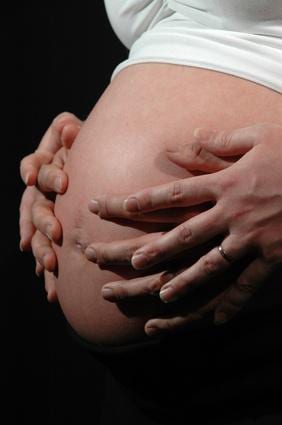While menstrual cramps, labor and pregnancy are all related to the reproductive system, several key facts distinguish these three phases of a woman’s life. Also, in some cases, what feels like menstrual cramps or appears to be the signs of menstruation actually indicate pregnancy, according to the March of Dimes and the American Pregnancy Association. Learning how to differentiate between menstrual pain, ordinary pregnancy pain, potentially serious pregnancy pain and impending labor can give you the tools needed to get prompt medical help if needed.
Labor Identification
Contractions may happen throughout your term, especially in the later stages, according to the American Pregnancy Association. However, when the contractions, which sometimes feel like menstrual cramps, are less than five minutes apart and accompanied by symptoms such as a mild bloody discharge, your new son or daughter is likely well on the way.
Pregnancy Pain Identification
Most pregnancy-related pains that feel like menstrual cramps are nothing to be concerned with, according to the March of Dimes. However, if the pain feels worse than ordinary menstrual cramps, then you need prompt medical attention; sometimes severe pain especially if accompanied by blood can indicate potential pregnancy complications, including miscarriage.
Early Misconceptions
When the fetus implants itself into your womb, you will likely experience mild cramps for a day or so, according to the March of Dimes. Sometimes expectant moms mistake this symptom for menstrual cramps, especially if a mild bloody discharge accompanies the implantation process.
Ordinary Pregnancy Pain Causes
Ordinary pregnancy stomach pain is caused by a number of factors during your term, according to the March of Dimes. During your second trimester, the ligaments that support your uterus stretch to accommodate your growing baby. This can cause the pain that feels more like menstrual cramps even though you are indeed pregnant. Also, gas pain, constipation, heartburn and general pressure from your growing baby can create typical pregnancy-related stomach cramps.
Warnings
If your pain is accompanied by foul-smelling discharge or clot-like blood, you may be suffering from a miscarriage or tubal pregnancy, according to the March of Dimes. Tubal pregnancies, medically called ectopic, cannot continue, as the fetus is trapped in a fallopian tube rather than the uterus. Severe abdominal pain may indicate miscarriage or ectopic pregnancy; consult with a medical professional immediately. Fever or chills along with severe cramps can indicate a possible septic situation, especially if you might have suffered a miscarriage.
Photo Credit
- pregnant woman and hands image by Lars Christensen from Fotolia.com





